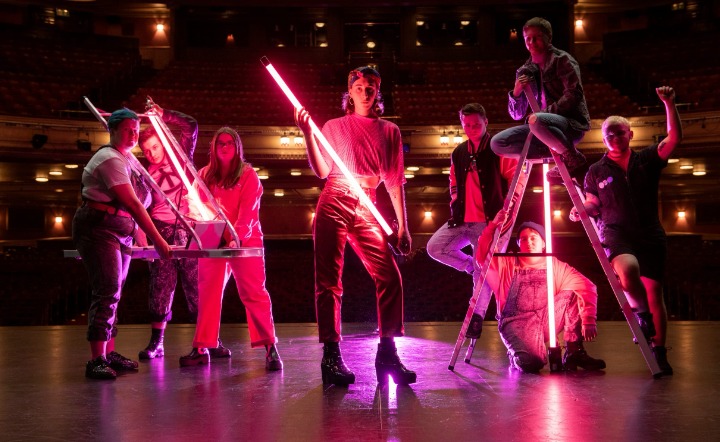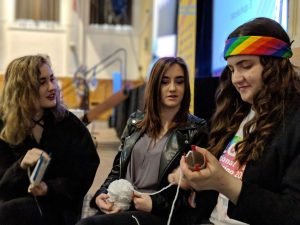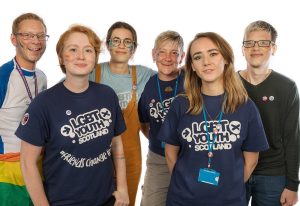LGBT Youth Scotland - Promoting Health and Wellbeing in Scotland’s Youth
Case study
We are Scotland’s national charity for LGBTI young people, working with 13–25 year olds across the country. We also deliver the LGBT Charter programme to schools, organisations and businesses. Established in 1989 response to Section 28. a clause within the Local Government Act (1988) that banned the “promotion of homosexuality” by local authorities and schools across UK. At the time, the PM Margaret Thatcher said:
“Children who need to be taught to respect traditional moral values are being taught that they have an inalienable right to be gay… All of those children are being cheated of a sound start in life.”
The law was repealed in Scotland in 2000 but it left a long and damaging legacy that would impact on generations.
We play a leading role in the provision of quality youth work to LGBTI young people that promotes their health and wellbeing, and are a valued and influential partner in LGBTI equality and human rights.

Nowadays, our aims are broader but improving young people’s experiences of education is still at the core of our work. We know that when we empower teachers to support LGBTI young people it has a lasting positive impact on their lives.
Overall our goal is to make Scotland the best place to grow up for lesbian, gay, bisexual, transgender and intersex young people. To achieve this:
- We deliver youth work that that promotes health and wellbeing.
- We run activities that empower young people to find their voice through activism and inspire change.
- We work with schools and organisations to train staff, improve practice, and deliver inclusive spaces.
Mental Health and LGBT Youth

Research carried out with lesbian, gay, bisexual and transgender young people shows that they experience poor mental health at a higher rate
than the rest of the population. This is due to experiences of discrimination, isolation from communities and families, as well as barriers to accessing services. Poor mental health is particularly acute amongst LGBT young people with our research showing that:
- Half of LGBT young people had experienced suicidal thoughts and actions, and 43% had self-harmed.
- 73% of LGBT young people who had experienced at least one mental health problem had been bullied at school.
This quote from a young person encapsulates our approach to tackling this:
“Knowing that you’re not alone is a big step to getting better. When you have people around you that are going through the same kind of issues it can be helpful, and you can help each other through it.”
This year, we also carried out online consultations which showed that young LGBT women experience multiple forms of discrimination and prejudice, both as young women and as LGBT people:
- 85% of respondents had witnessed people use sexual stereotypes about LGBT women around them. They also felt that media representations often stereotyped or portrayed LGBT women in an overly sexualised way to appeal to heterosexual men rather than accurately represent them.
- Some were concerned about the impact pornography has on how LGBT women are perceived and treated, describing feeling fetishized because of representations online.
“LGBT women are incredibly sexualised online, to the extent of which boys would ask to see me kiss a girl because they find it ‘hot’…”.

- Many also noted experiences of violence, abuse and/or harassment being directed at them specifically as LGBT young women. This included physical violence, sexual violence, and verbal abuse, in person and online.
This consultation only scratched the surface; there is lots more for us to learn and understand. It’s essential that LGBT young women and girls are able to access appropriate information, so we’ll be revisiting and updating our resources as well as raising awareness of their experiences Stay in Touch and Find Out MoreIf you’re a professional who needs some advice or guidance, then get in touch. You may also be interested in our LGBT Charter programme, which includes training and mentorship for your organisation or school.
If you are an LGBT young woman or girl aged 13 – 25, we are here for you. There’s a range of digital support services available to you, and you can find out more about our Youth Groups and how to get involved on our website.
To find out more, go to lgbtyouth.org.uk or follow us on Twitter or Instagram.